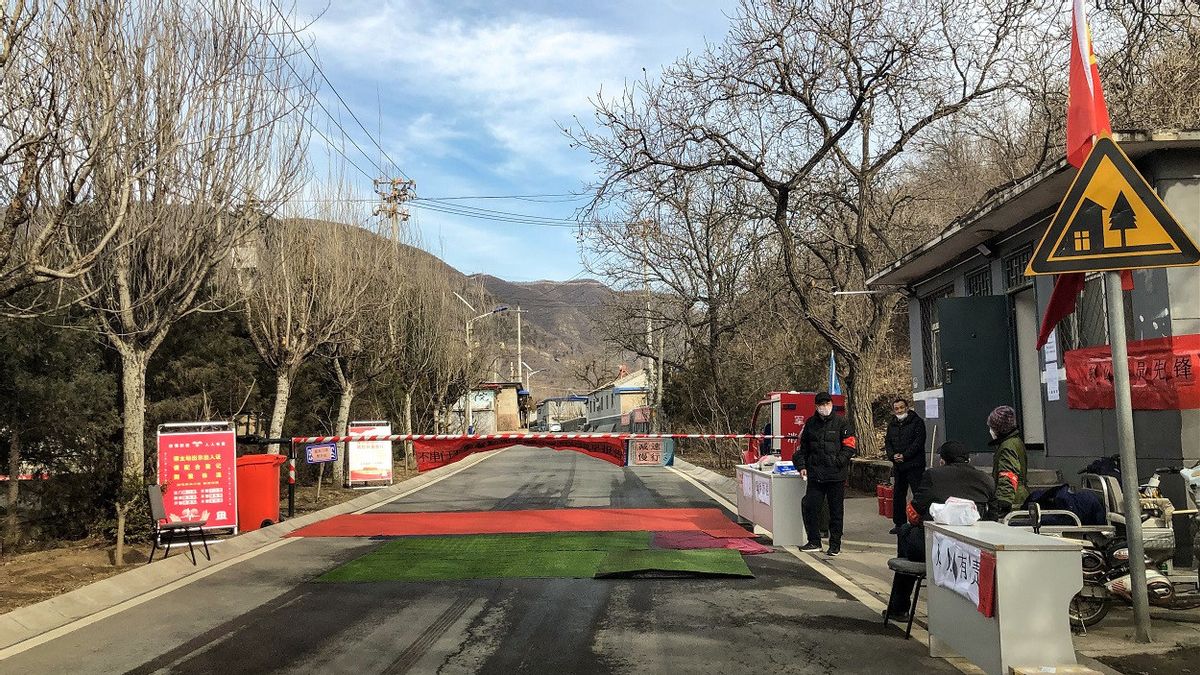JAKARTA - Chinese authorities on Friday relaxed some strict COVID-19 rules, including shortening the two-day quarantine for close contacts of infected people and incoming travelers, to eliminating sentences for airlines for bringing in too many positive cases.
The easing of restrictions, a day after President Xi Jinping chaired his new Politburo Standing Committee in a meeting on COVID, prompting the market even as many experts warn the measures are gradual and reopening may still be far away.
Under the new rules, a centralized quarantine time for close contacts and travelers from abroad was shortened from seven to five days. Requirements for the next three days in house isolation after centralized quarantine persist.
China will also stop trying to identify secondary contacts, a major disruption to city residents trapped in contact tracing efforts when a case is discovered while still identifying close contacts.
"Optimizing and adjusting preventive and control measures is not loosening prevention and control, let alone opening and 'letting it down', but to adapt to new epidemic prevention and control situations and new characteristics of COVID-19 mutations," the National Health Commission said. November 11th.
The NHC said it would develop a plan to accelerate vaccination, which experts say is very important, before the country could completely cancel its zero-COVID policy which has made China a global outlier.
Among the new steps is to adjust the categorization of COVID risk areas to 'high' and 'low', eliminating the'moderate' category in an effort to minimize the number of people trapped in control measures.
The new measures include ending the 'delay sentence' for airlines, if they carry too many passengers infected with COVID, a system that often causes cancellations.
It is known, many experts say China is unlikely to start "reopening its country" as early as possible until after the March parliamentary session.
The easing comes as the number of cases in China has surged to its highest level since April, with Beijing and downtown Zhengzhou set record tallies, while many cities are expanding local lockdowns and other measures, including Guangzhou.
Cities across China imposed stricter control measures this week, as the number of cases soared despite their global standards being low.
Authorities reported 10,535 new domestically transmitted cases for Thursday, the largest since April 29, as Shanghai battles the most serious outbreak under a strict lockdown.
Guangzhou City, a manufacturing and transport hub, reported 2,824 new local cases for Thursday, a fourth day where infections exceeded 2,000.
In addition, at least three of the 11 Guangzhou districts have been imposed some kind of restriction and the city's Haizhu District extended the lockdown until Sunday.
"Only one person in each household is allowed to buy daily necessities with an uncertain schedule," said the regional government of 1.8 million people.
However, Guangzhou also said it would soon release "secondary" contacts from quarantine, under the new rules.
Beijing, Zhengzhou, and Chongqing also tightened action as cases escalated. Zhengzhou reported 2,988 new cases, more than double the previous day.
Meanwhile, southwestern metropolitan city Chongqing, cases reached a new high of 783 on Thursday. Several districts on Friday banned eating in restaurants and some subway stations were closed.
Beijing reported a record 118 new domestic cases for Thursday, with parts of the city urging daily testing for another three days. Several Beijing areas have barred entry to public spaces including offices, recreation areas and fitness centers.
The English, Chinese, Japanese, Arabic, and French versions are automatically generated by the AI. So there may still be inaccuracies in translating, please always see Indonesian as our main language. (system supported by DigitalSiber.id)










